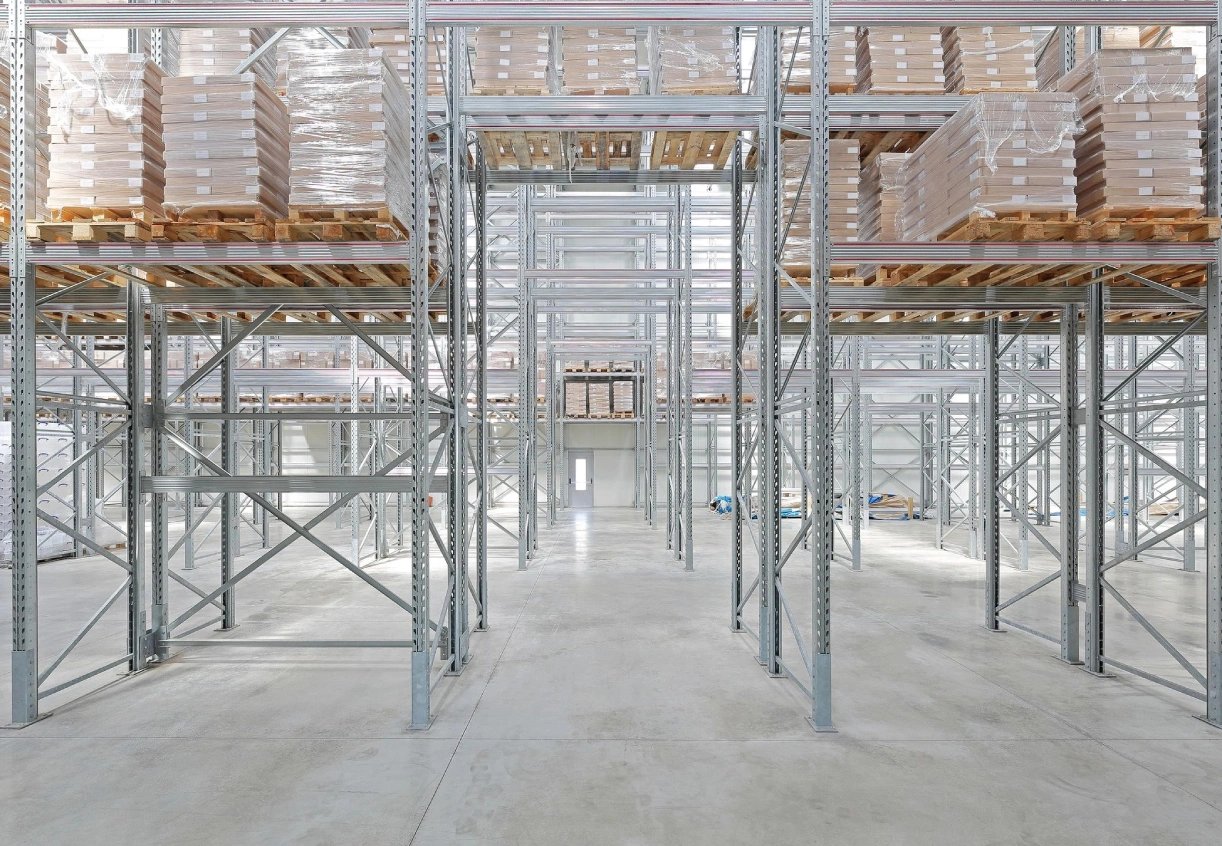RESINOUS FLOORING
Industrial Resinous Flooring
These floors are typically made from resins like epoxy, polyurethane, and methyl methacrylate (MMA). These resins can be applied concrete to many different substrates, not just concrete floors to create a durable, smooth surface that can withstand heavy traffic and industrial abuse. (Pro Surfacing works to find the best materials- taking in consideration time constraints, but also quality and safety concerns as well!)
Some Typical Types of Industrial Resinous Coatings Are-
Epoxy: A popular, durable, and customizable resin that's made from epoxy resin and a hardener. Epoxy is often used in warehouses, manufacturing facilities, and other heavy-duty industries.
Urethane cement: A strong and durable resinous floor made from polyurethane and quartz sand. It's moisture insensitive and can be applied to damp concrete. Urethane cement can also resist thermal shock.
Polyurethane: A resin that's often elastic.
MMA: Methyl methacrylate flooring, is a durable, slip-resistant, and chemical-resistant floor coating that can be used in a variety of settings. MMA flooring is known for its quick curing time and ability to be applied in cool temperatures.
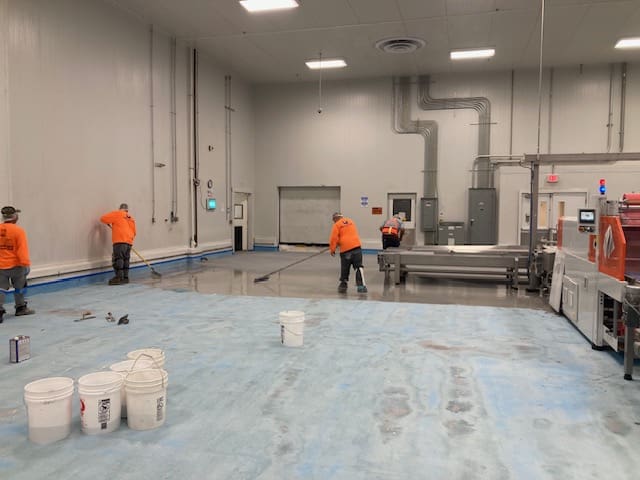
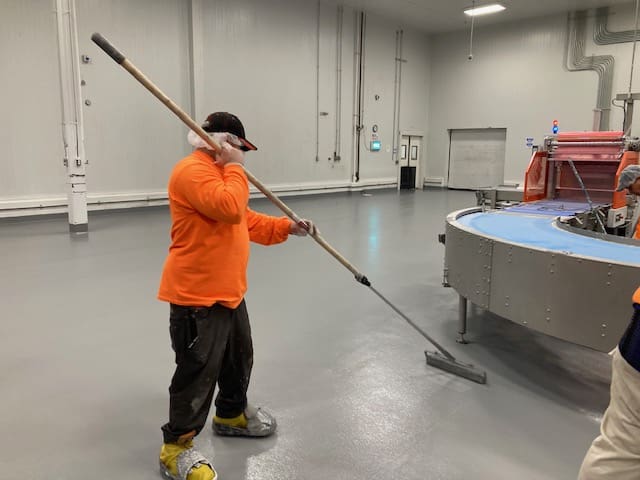
FLOOR AND WALL TILE
Argelith Tile
Argelith tiles are ceramic tiles that are designed to be durable and long-lasting. They are made in a state-of-the-art ceramic tile factory and are used in a variety of industries, including manufacturing, beverage production, and automotive. Here are some of the features of Argelith tiles:
Material: Made from natural, sustainable ceramic that is resistant to heat, chemicals, and fumes
Durability: Harder than steel and stronger than concrete, Argelith tiles can withstand vibrations, abrasion, and impacts
Maintenance: Require no maintenance other than regular cleaning
Slip Resistance: Have a dimpled surface texture that is nonslip but can still be scrubbed clean
Temperature: Can withstand temperatures from freezing to boiling
Hexagonal Shape: The tiles are about 16 inches square and are ideal for wet environments. Their shape allows for easy sloping and minimizes grout lines
Load Bearing Capacity: The tiles are thick and dense, allowing them to support the weight of heavy equipment
Smooth Ride: The tiles allow for smooth rolling traffic from pallet jacks and forklifts
Virtually Seamless: When installed properly, the tiles create a flat and even surface with narrow joints that can be filled almost level with the tile
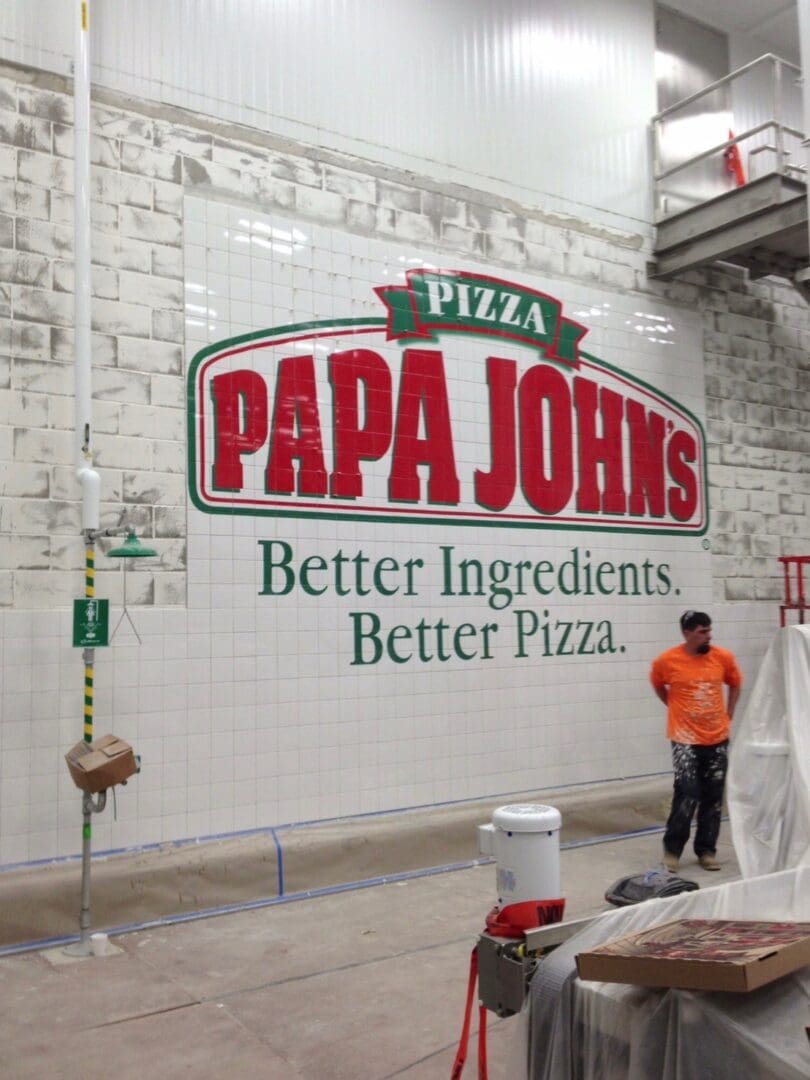

Wall Tile
Pro Surfacing also tiles vertical surfaces. Production room walls are subjected to the same strict standards as the floors are. Tiles are installed with an FDA approved grout that provides a compliant, easy to maintain finish.
Dairy Brick Overlay
Acid Brick was the industry standard many years ago, but in recent years have proven to be hard to maintain and impossible to clean.
Plants in our industry are now finding out that tile floors are not only hard to keep clean and maintain, but fail to pass basic environmental audits as they often harbor bacteria.
Pro Surfacing has come up with a system that provides a seamless floor making clean-up easy!
Benefits
- No need to demo old brick and run the risk of environmental contamination
- Less downtime
The benefits make your new floor incredibly affordable!

Floor Puddling Solution
Floor puddling solution
Pro Surfacing understands the problems that floor puddling can cause in your facility. These wet areas not only provide harborage points for pathogen growth, but they are also responsible for personal safety issues and can lead to personal injuries like slips, trips and falls.
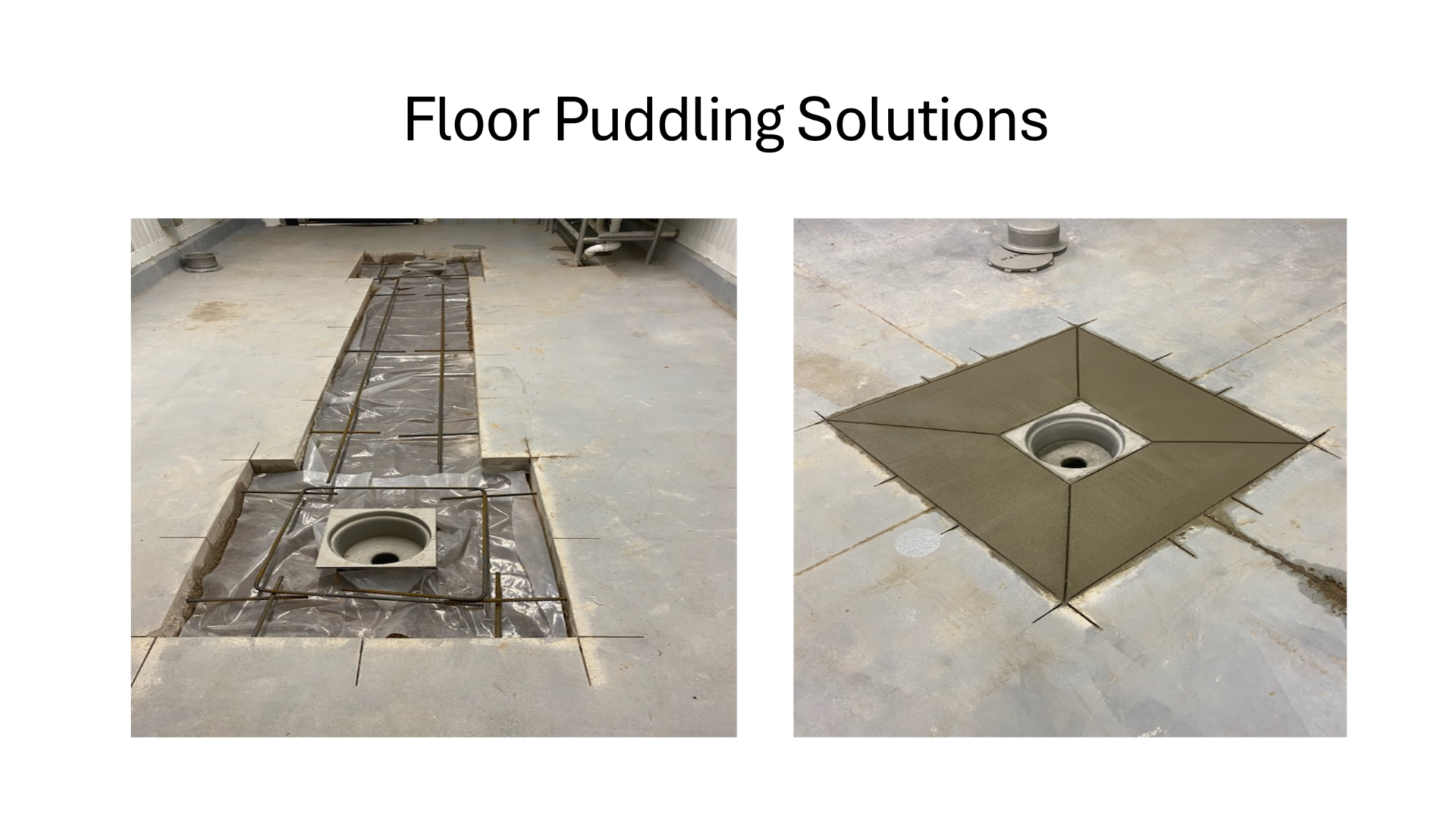
TANK AND CONTAINMENT LINING
A chemical tank lining is a protective coating applied to the inside of a storage tank to prevent the stored chemicals from contaminating the tank itself and the surrounding environment, by acting as a barrier against corrosion and chemical reactions with the tank material, while also ensuring the purity of the stored chemicals by minimizing contamination from outside sources; the type of lining needed depends on the specific chemicals being stored, including their reactivity, temperature, and concentration.
Key Points About Chemical Tank Linings and Contaminants:
Function:
The primary role of a tank lining is to prevent the stored chemicals from interacting with the tank material, which could lead to corrosion and potential leaks, while also safeguarding the chemical's purity by preventing contamination from external sources like dust, moisture, or other chemicals.
Material Selection:
Choosing the right tank lining material is crucial as different chemicals have varying levels of reactivity and require specific compatible linings. Common lining materials include:
Epoxy Resins:
Widely used for their good chemical resistance and adhesion to various substrates.
Fluoropolymers (like PTFE):
Highly resistant to aggressive chemicals and used for highly corrosive substances.
Rubber Linings:
Suitable for applications involving abrasion and impact resistance.
Glass Flake Reinforced Vinylester:
Offers high chemical resistance and strength.
Contaminant Concerns:
Chemical reactions: If the wrong lining is used, the stored chemicals can react with the lining material, leading to contamination and potential damage to the tank.
Impurities From the Tank:
Existing rust or residue on the tank surface can contaminate the stored chemical if not properly cleaned before lining application.
Environmental Contamination:
Without a proper lining, leaks from a damaged tank can release hazardous chemicals into the environment.
Maintenance and Inspection:
Regular inspections are necessary to ensure the integrity of the lining and identify potential areas of damage or degradation, which can lead to contamination issues.
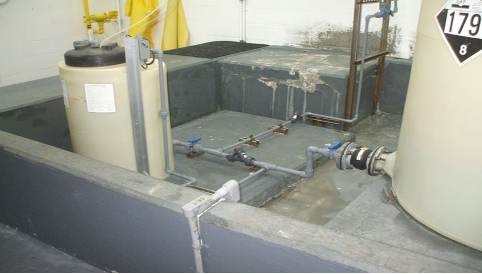
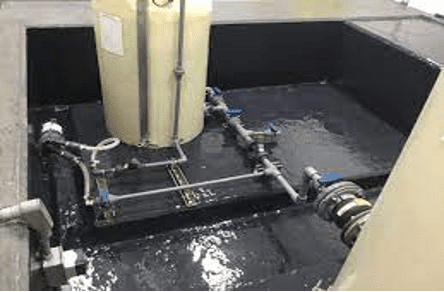
FIBER WALL INSTALLATION & REPAIR
Pro Surfacing Fiberglass Wall Installation
Pro Surfacing Resinous Fiber Wall Systems will increase the wall’s structural integrity and help prevent physical damage.
Pro Surfacing’s Flexible Impact Resistant Membrane Wall Systems are now available for clients who need an extra layer of impact protection.
Antimicrobial Agent Additive
In spaces where moisture is expected, we strongly recommend that you customize your wall systems and flooring systems to include an antimicrobial agent additive.
UV Stable Seal Coats
Seal coat options for all Durex resinous walls systems include UV resistant urethane seal coats. Our hybrid urethane and Polyaspartic seal coats offer added abrasion resistance, true white color finish, and added UV resistance.
Chemical and Stain Resistant Seal Coats
For most of our seamless wall or flooring installation projects, we recommend that our customers choose a seal coat that contains chemical and stain-resistant properties. These seal coats are especially useful in environments such as Foods and Beverage, Chem Containments, and Washdown Areas where chemical or other materials are likely to come into contact with walls or floors.
ROOM ISOLATION
Room Isolation
Pro Surfacing partners with “Viking Specialty” to provide (Room Isolation.) Our teams have been challenged many times to reconstruct floor, wall, and ceiling areas- without having to shut down entire production areas which has proven to be quite costly!
These Temporary Areas Provide the Following:
Negative air pressure:
To prevent contamination from escaping the room, temporary isolation rooms usually use negative air pressure, meaning air is drawn into the room and filtered before being exhausted outwards.
Portable barriers:
These rooms can be constructed using temporary wall panels, curtains, or other dividers that can be quickly set up and removed as needed.
Anteroom:
A small entry area (anteroom) is often included to allow construction workers to properly don and doff protective gear before entering and exiting the isolation room, minimizing the risk of contamination spread.
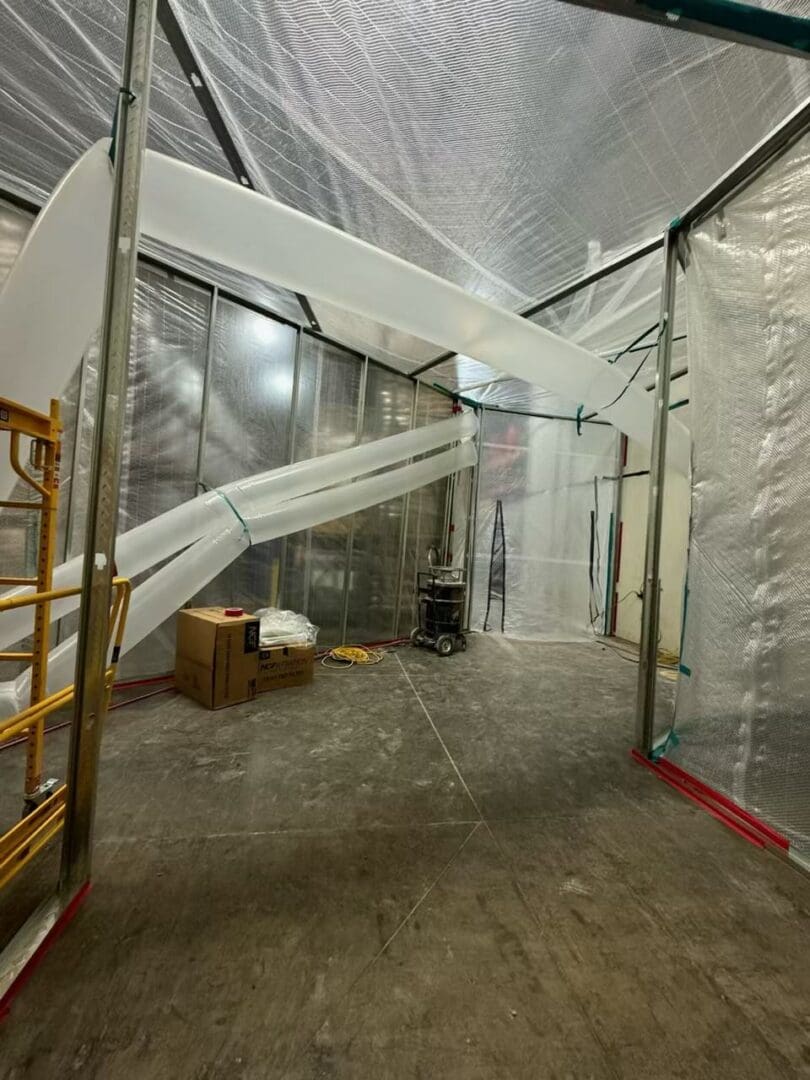
Pro Surfacing Serves
Due to the variety of specialized surfacing solutions we provide, our clients come from a variety of businesses and industries. Common industries/areas where our installations may appear include food manufacturing facilities, clean rooms, microchip processing, aerospace assembly plants, as well as most restaurant kitchens and retail spaces.
At Pro Surfacing we understand production and quality control demands. Downtime needs to be minimized however possible. With that in mind, most of our installations occur during off hours, holidays, weekends, and sometimes while the operation is in full swing. Many fast-drying, low VOC, odorless systems have been installed within custom enclosures while production is happening right on the side of the enclosure. HEPA-filtered air purifiers along with air quality testing can be implemented when shutting production areas down is not an option.
Contact Us Today
Ready to transform your space with superior surfacing solutions? Contact Pro Surfacing today to discuss your project needs.
